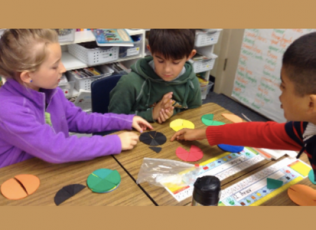About
The Universal Design for Learning (UDL) framework provides guidelines that can help teachers proactively plan for the academic diversity present in classrooms. This is especially important when it comes to CS education due to the historic underrepresentation of women, people from different cultural backgrounds, and people with disabilities in CS fields. If we can think about ways of meaningfully engaging ALL learners through the UDL framework, then we can address the barriers that are inherent in my CS activities.
UDL is a proactive approach to planning of curricular opportunities. A UDL approach takes into account learner variability when considering goals, methods of instruction, assessments and materials. It is organized around the principles of providing students with multiple means of representation, expression and engagement with their learning.
Authors/Creators
Israel, M.
Lash, T.
Ray, M.
Organization/Publishers:
University of Illinois, Creative Technology Research Lab
Resource Quick Find
Implementation
Professional Development
Share this resource:
Posted date:
November 5, 2018
Access the full resource here if it does not render.
Document Title:
Utilizing the Universal Design for Learning Framework in Computer Science Education




